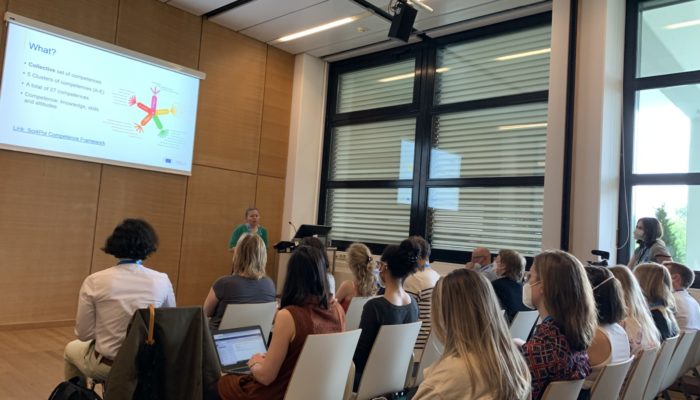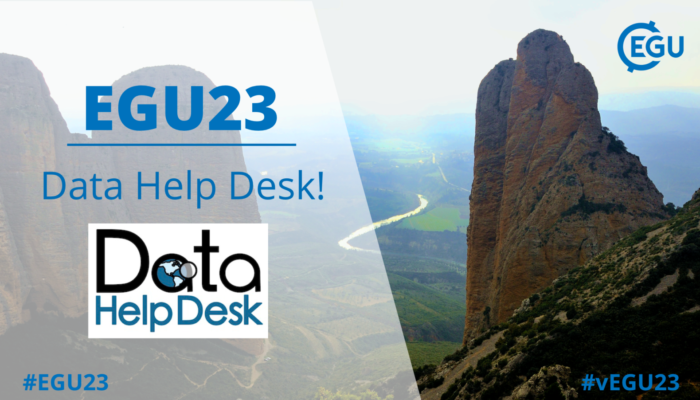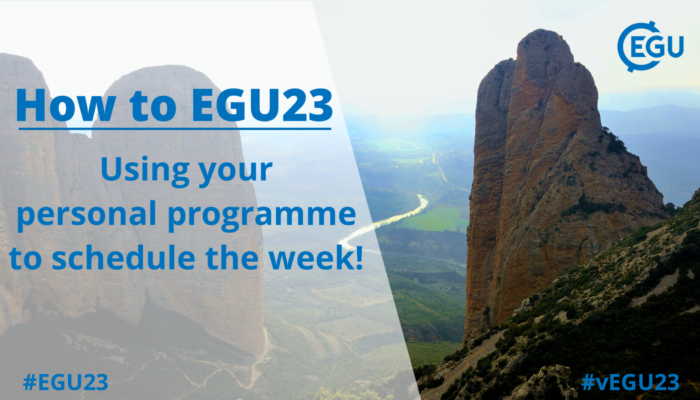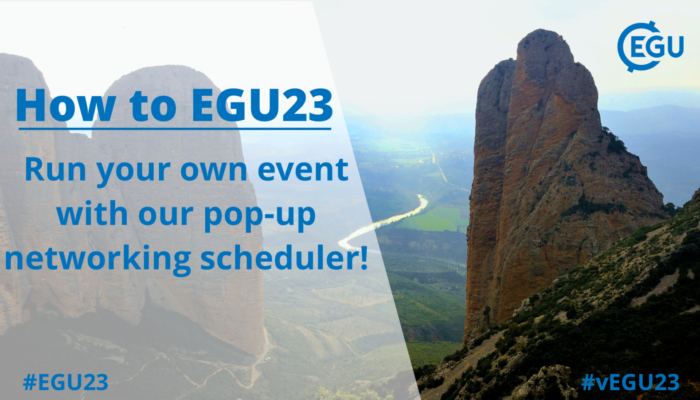As the largest geoscience meeting in Europe with 14,000 onsite and 3,000 virtual participants expected this year, the EGU General Assembly has a huge range of scientific sessions that enable participations to gain a greater understanding about specific topics both within and outside of their research area. But more than this, there are also plenty of non-scientific sessions that participants can a ...[Read More]
How to EGU23: the Data Help Desk!
Do you have data-related questions? Are you looking to make your data and/or software open and FAIR? Are you interested in tools and resources for working with your data or for finding data to reuse? The Open Science and Data Help Desk is here for you! The Open Science and Data Help Desk, which is a program of the Earth Science Information Partners (ESIP), EGU, and American Geophysical Union (AGU) ...[Read More]
How to EGU23: using your personal programme to schedule the week
Now that you have had a quick look at our programme for EGU23, maybe found your abstract or session, you probably have a few questions! This year’s scientific programme of the General Assemby includes Union-wide Sessions, such as the medal lectures, great debates, short courses, education and outreach sessions, as well as townhall and splinter meetings, just to name a few. The Disciplinary Session ...[Read More]
How to run your own event with our pop-up networking scheduler at EGU23
Attendees at the EGU23 General Assembly can organise their own events using the the Pop-up Networking Scheduler! Registered participants can use the online tool to organise networking events both inside, outside, and beyond the conference centre – including virtually. All events organised using the Pop-up Networking Scheduler will appear on the conference programme. The scheduler is designed for a ...[Read More]




